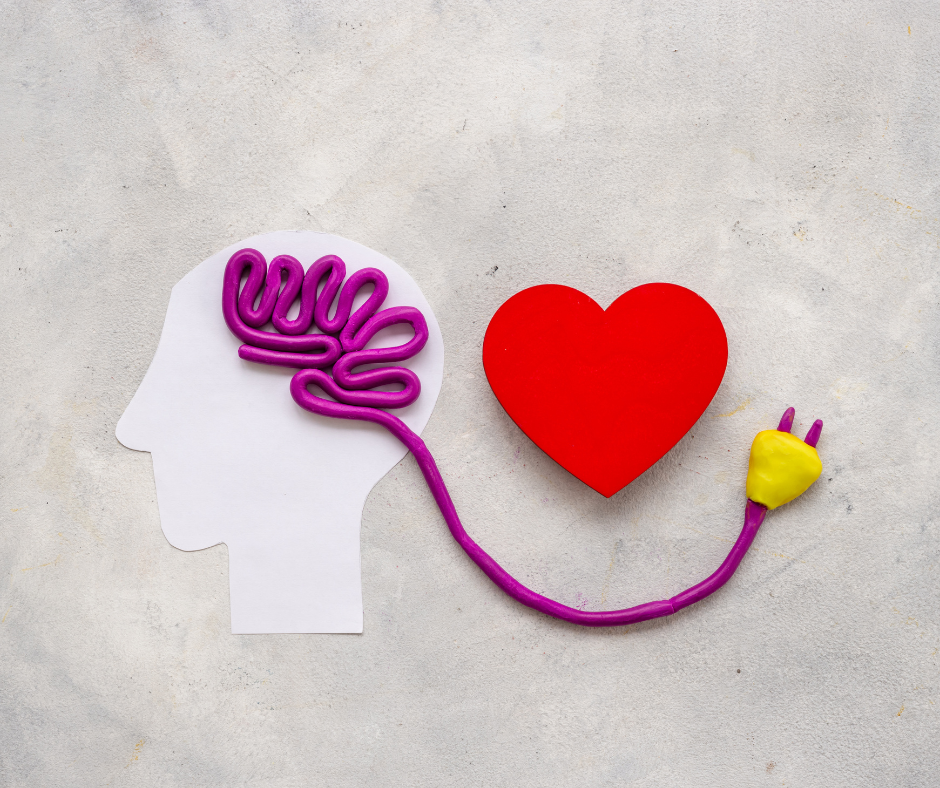Judgment Versus Awareness: What's The Difference?
- Lauren Joy

- Jun 19, 2024
- 4 min read
What's covered: How to tell the difference between judgmental thoughts & helpful awareness; Simple ways to improve your awareness & break free of judgment
Have you ever been called judgmental?
Or, have you questioned your own judgements or feelings around a person or situation? If yes, then read on, because this blog is for you! ;-)
Sooner or later in one-on-one sessions, a client will often ask me a very common and crucial question:
"Is that me being judgmental...or, is that awareness? How can you tell the difference?"
You might find yourself asking this question when experiencing:
Ongoing relationship issues or family drama
New or old work environments
Indecision around future life choices
So, what is the difference between awareness and judgment?
Defining Judgment Versus Awareness
First, in simple terms, let's loosely define judgment and awareness...
Judgment: A mental activity where your mind generates thoughts about a situation; analyzing, questioning, coming to conclusions, going over past events or pre-empting future outcomes.
Awareness: Having your attention in the moment, observing the situation - without fear or fantasy - through your senses. (It's also referred to as your gut instinct, higher self or inner guide.)
Those definitions might be helpful, but they're still lacking some meaty real-life relatability. In the name of clarity, here's my take on it...
Recognizing Judgmental Thoughts From Awareness Moments
I can hear awareness. Can you too?
Put simply, I can hear it in my client's voice and see it in their body when they're speaking from awareness versus judgment.
For me, awareness feels like a cloud gliding through the sky, whereas judgment can feel like a sledgehammer pounding into hard unyielding dirt.
Why do awareness and judgment feel and sound so different?
Because judgment is focused on the wrongness of the situation; there's resistance or rejection to what is happening, what has happened or set beliefs about what now needs to happen.
Helpful hint: Judgment often involves labelling words based on social conditioning, such as "good" or " bad." It also frequently involves name-calling of yourself or others, such as "He's / She's such a [beep]!"
Judgment has an underlying feeling of fear-based control; either a desire to gain control, or a fear of losing control.
How To Spot Awareness In Yourself Or Others...
When a person is communicating from awareness, however, their tone is gentler; their energy shifts, it's softer; their intensity lightens or their tightly held conviction loosens; their body visibly mellows.
They're no longer talking from a place of wrong or right, they're instead communicating from gut instinct or sixth-sense perception, bypassing the logical and analyzing mind.
There's also a sense of non-attachment. When hearing or speaking from a place of awareness, clients will often say to me: "That just sounds true" or "That really feels true when I hear myself say that."
Don't get me wrong, it doesn't necessarily mean the client likes the awareness they're communicating or hearing; actually, sometimes they don't.
Why? Because it's frequently in direct opposition to the judgments they were fervently espousing prior to the awareness breakthrough. And yet, after experiencing clarity through awareness, that deeper knowing part of them feels a sense of new-found peace.
Simple Ways To Improve & Strengthen Your Awareness
How to recognize and stay grounded in your awareness:
Don't expect awareness when you're feeling highly triggered: awareness, like calm, often comes after the storm
Awareness can quickly turn into judgment: observe your words and feel into the energy of what you're saying, i.e. is it an awareness cloud or a judgment sledgehammer?
Awareness increases with presence and stillness: a busy mind and a rushed body short circuits the connection between you and your gut instinct
Listen for the quieter, gentler voice (inner-guide awareness) versus the louder, insistent voice (egoic mind chatter)
IMPORTANT points to remember about awareness:
Not all awareness needs to be shared: awareness about others can be helpful for your own understanding, but it doesn't necessarily need to be shared with the person themself
Not all awareness needs to be acted on: some awareness is helpful background information or insight that allows better context for a situation
Awareness doesn't necessarily feel good: you might not even like what you're awareness is communicating, and yet there will be a deeper part of you who can feel the truth of it regardless
And, yes, you can have awareness mixed in with judgment about a situation or a person, which can be really confusing and frustrating. This is where seeking the guidance of a professional can really help you to sort the slippery judgment from the shining awareness! ;-)
Why is knowing the difference between judgment and awareness so important to everyday life?
Your awareness is your inner compass - your personal peaceful bodyguard - guiding you beyond the choppy seas of life triggers into calmer waters.
Without awareness (or even awareness of your awareness!) you stay stuck within the confines of your own mind chatter or bound to the rigidity of your own habitual behaviour.
If judgement is the prison, then tuning into your awareness is your key.
Feel like you need some help distinguishing judgement from awareness? Email hello@laurenjoywilson.com and reach out.





Comments